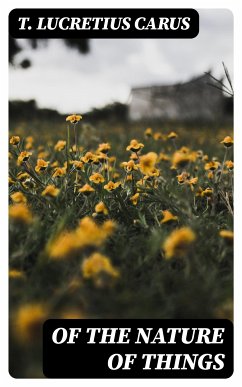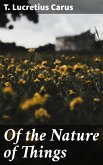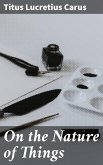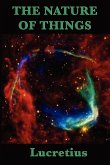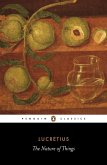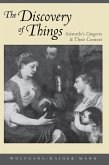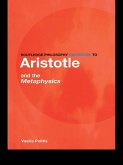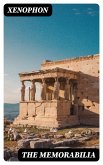In "Of the Nature of Things," T. Lucretius Carus presents a seminal work that intertwines poetic elegance with philosophical inquiry, fundamentally rooted in Epicurean thought. The poem delves into the nature of the universe, exploring concepts of atoms, void, and the natural laws that govern existence. Through vivid imagery and clear articulation, Lucretius seeks to demystify the cosmos, arguing against the superstitions of his time by emphasizing empirical observation and rational discourse. The work is not merely a philosophical treatise; it is a rich tapestry of metaphysical musings that invites readers to reconsider the relationship between humanity and the universe, asserting that understanding nature's workings leads to tranquility and liberation from fear of the divine. Lucretius, a Roman poet and philosopher active in the 1st century BCE, was deeply influenced by the teachings of Epicurus, whose materialist philosophy aimed to free humanity from the anxieties of religion and fate. Living in a time marked by political turmoil and moral uncertainty, Lucretius's work reflects not only his intellectual commitments but also a profound desire for human flourishing through knowledge. This blend of poetry and science showcases his remarkable ability to convey complex ideas in an accessible and artistic manner. "Of the Nature of Things" is an essential read for anyone interested in philosophy, science, or poetry. It serves as a critical bridge between ancient thought and modern scientific perspectives, challenging readers to question their perceptions of reality. Whether you are a scholar or a casual reader, Lucretius's insights will resonate, encouraging a reflective understanding of nature and existence.
Dieser Download kann aus rechtlichen Gründen nur mit Rechnungsadresse in A, B, BG, CY, CZ, D, DK, EW, FIN, F, GR, H, IRL, I, LT, L, LR, M, NL, PL, P, R, S, SLO, SK ausgeliefert werden.
Hinweis: Dieser Artikel kann nur an eine deutsche Lieferadresse ausgeliefert werden.

